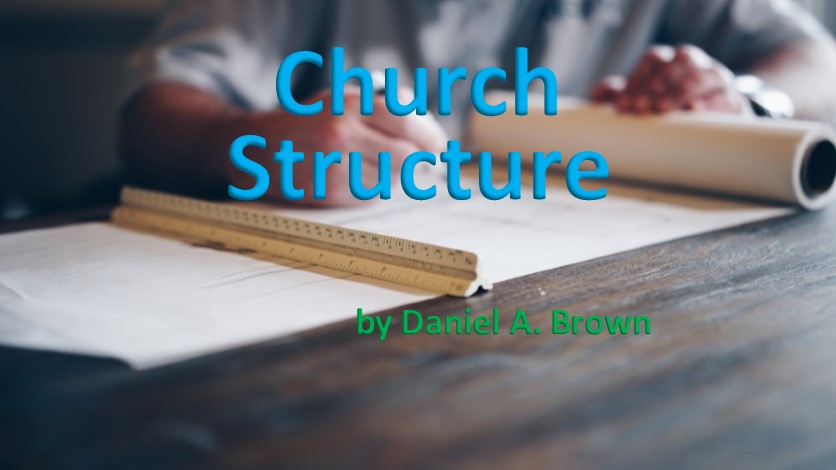Church Structure

Pastor Daniel Brown says that when it comes to organizing a local congregation, “structure” should be a verb, not a noun.
Sometimes the most obvious truths escape our attention until we find ourselves in a new setting. For instance, even though I had been taught the truth of God’s word from boyhood, it was not until after I began attending a Pentecostal church during my college years that I realized how often the Bible exhorted me to “Praise the Lord.” The non-charismatic church culture from which I came made me inherently suspicious of borderline danger points that might carry me away into emotionalism—like lifted hands, spoken praise and hymnal-less worship. I still do not know how I had missed such an obvious theme in Scripture, but “Praise God” suddenly made sense to me as a personal encouragement, rather than as mere words or an emphatic (verbal) punctuation mark.
Perhaps that is why I’m always on the lookout for obvious truths that unintentionally become hidden behind well-meaning spiritual attitudes. Take for example our passion and earnest prayers for God to “do something”; as Pentecostals we celebrate spontaneous interventions, miraculous and sovereign activities of the Spirit. And well we should. But a simple reading of the Bible reveals that what God does on earth almost always happens through the agency of individual human beings; He does almost nothing all on his own, without using some person’s staff, hand, lips, etc. People are God’ss tool of choice, and that is why Jesus told us to pray for laborers, rather than for the harvest (Matt. 9:37-38).
I’m not suggesting that it is wrong to pray for revival—just that it is an incomplete understanding of how God “moves” unless we have a corresponding passion to mobilize workers for the Harvest: intercession and discipleship; seeking God and sending people. One way to think about why God employs us fallible creatures, is that He wants us to share His excitement by involving us in the very process of rescuing and transforming His children.
In the same way that an overly spiritualized view of God’s activity on our planet can cloud a complete picture of how He does things, so too can our feelings about natural vs. spiritual—especially when it comes to subjects like administration and structure in our churches. We who rely on fresh leadings of the Lord in our personal lives and ministry are suspicious of any barriers or limitations that might get put in His way. The very mention of structure frightens many Pentecostal leaders—usually because they fear it will unduly “quench” or interrupt the free flow the Spirit.
But God is not constrained by order; a river with narrower passage flows faster, and a river that overflows its banks is called a flood. Just as God uses flesh and blood people as vessels for His activity, (subjecting the spirit of a prophet to the prophet), so He often makes physical arrangements to sustain spiritual breakthroughs; “God is not a God of confusion” (1 Corinthians 14:32-33). From the very beginning of Creation we see God bringing order to chaos, setting up boundaries to distinguish night from day, developing (eco)systems, job descriptions (“Be fruitful and fill?”) and arenas of responsibility (Caretakers of the planet).
The Book of Numbers is essentially an administrative handbook on duties and arrangements for God’s people, and throughout the Old Testament we find series after series of record-keeping, boundary-defining, tribe-distinguishing, people-deploying and assignment-giving. Whatever their spiritual meaning or implication, these are administrative activities—the stuff of structure and logistics.
Category: Ministry, Winter 2020


